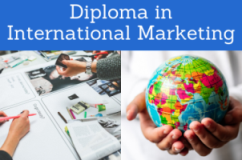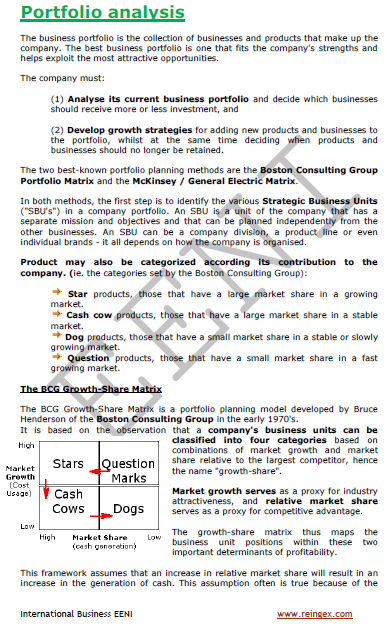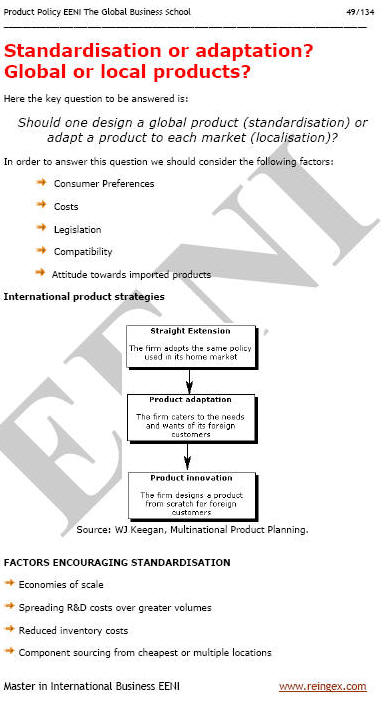International Product Policy

Global Product Strategies: business portfolio, standardization (Marketing)
The Subject “International Product Policy” consists of two parts:
1- International Product Strategies.
- Introduction to the international product/service strategies
- Standardization, adaptation, and diversification of products and services
- Globally standardized products and services
- Locally adapted products and services
- Brand and product/service policy
- Business portfolio
- BCG Growth-Share Matrix
- McKinsey matrix
- Experience curve
- E-Product. Digital value. Pervasive computing
- Case Study:
- Silicon Graphics
- Comfort (Unilever)
- AESSEAL
- Johnson and Johnson
- General Motors Corporation
- Tantrix
- Linux
- Nintendo
2- Quality and International Marketing
- Quality and international marketing
- Standards and certifications
- Case Study: CE Mark
Objectives: the Subject “International Product Policy” sets out to analyze the key areas of the international product / service policy.
- To know how to design product/services strategies for the international markets
- To learn the importance of adapting an export product or service to the local or regional requirements when entering new export markets
- To know how to add value to a traditional product with value digital services
This will be achieved by:
- Examining the product/service adaptation options available to the exporter
- Analysing the product/service characteristics that typically need to be modified for the different international markets

The Subject “International Product Policy” belongs to the following Online Programs taught by EENI Global Business School:
Diploma: International Marketing.


Masters: Foreign Trade, International Business.
Languages:  or
or  Politiques du produit d’exportation
Politiques du produit d’exportation  Producto de exportación
Producto de exportación  Políticas de produto.
Políticas de produto.
Credits of the Subject “International Product Policy”: 2

Duration: 2 weeks.
Area of Knowledge: International Marketing.

International Product Policy.
Perhaps, the most important question for the exporter is:
Is it a global (regional) product or service or shall I localise it to every market or region?
The exporter should ask himself if the product or service is exportable. A product (or service) which is successful in the local market will not always be as successful in the international markets. Although the exporter works in the Globalization age, each market is different (culture, perceptions, or the way of doing business).
Therefore, only through the international market research, the exporter can find out if the product or service has potential or not in each target market.
Furthermore, the exporter should look at what types of modifications and/or adaptations should carry out on the product or service in his international marketing strategy.
Two common mistakes related to the product (or service) and exporting.
- The first, and main one, is to believe that what is right for the home market will also be suitable for the international markets
- The other is that they do not keep in mind the different channels available for their product distribution (importers, subsidiaries)
When an exporting firm makes a Market Research, one of the most important tasks it will face will be the analysis of the goods or services of the competition in each target market. Especially when entering new markets, the familiarity with the products or services of the competitors is vital. Many exporters ignore this key point.
Two questions are fundamental:
- How competitive is our product or service?
- What advantages, unique to our product or service, are granted on the customer/importer?
E-Product.
In many cases; we will add value to our products (atoms) with digital services (bits). We will also see industries in transition, which are no longer selling atoms to sell bits. In almost every case companies are re-inventing in some way, their products (their atoms) to add digital value to them through bits.

(c) EENI Global Business School (1995-2024)
We do not use cookies
Top of this page



